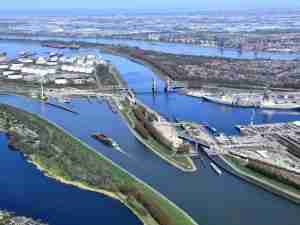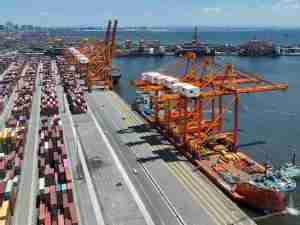Yemen, the Arab world's poorest country and neighbour to the world's biggest oil exporter, Saudi Arabia, relies heavily on its sea lanes for trade.
Aden is Yemen's biggest port and one of the largest natural harbours in the world. Mukalla is a smaller port situated in the Gulf of Aden. Other terminals serving Yemen include Saleef, Hodeidah and Mokha on the Red Sea, the oil export terminal at Ash Shihr, and the LNG export terminal at Balhaf.
"Security at the ports -- the gateways to Yemen -- remains a matter of great importance to the three port corporations which have responsibility for ports," said Roy Facey, port development adviser to the Port of Aden. "And measures have been taken to harden the boundaries around key facilities," he told Reuters.
Maritime specialists familiar with the ports said new razor wire barriers had been installed around some of these facilities and armed guards had been posted at gates where previously unarmed watchmen were responsible for entry points.
The Yemen Coastguard continues to protect the terminals in Aden, including the Ma'alla Terminal, the Aden Container Terminal and the oil harbour, sources said. Armed coastguard boats carry out regular patrols of the harbour area.
Security at the facilities of Canadian oil firm Nexen Inc, which exports crude through the Ash Shihr oil export terminal east of Mukalla, was extensive, maritime sources said.
Those defences were tested by previous militant attacks on the terminal from the land side, which were effectively resisted. The terminal is protected on the seaward side by Yemen's navy.
Al Qaeda
Yemen -- the world's 32nd biggest oil exporter and 16th biggest seller of liquefied natural gas (LNG) -- lies at the mouth of a vital shipping route.
Sources said the Balhaf LNG Terminal was heavily protected against attacks and defended on the land side by Yemen's army and on the seaborne side by the country's navy.
Sources said activities at Mukalla were less critical to the national economy, as much of the cargo for this area of the country was currently handled through Aden and Hodeidah.
The port has a single entry into the main port area, and armed guards protect the gate. Hills overlooking the port at Mukalla were controlled by the military.
Al Qaeda in the Arabian Peninsula (AQAP), a local wing of the militant group, is viewed by analysts as being one of the main groups that could target shipping in the Bab-al Mandab.
Several hundred al Qaeda and Islamist militants took over the southern coastal city of Zinjibar a few days ago and have been battling locals and government soldiers for control.
"While the present unrest certainly presents AQAP and other militant groups with an opportunity to assert themselves ... they are also limited by their doctrine in what they can do since their very ideology prevents them from responding with the demands of many protesters for elections and democracy," said J. Peter Pham with U.S. think tank the Atlantic Council.
"While some Yemeni tribes have sheltered AQAP operatives and had their sons join it and other extremists groups, it is an entirely different thing for these entities, so jealous of their independence, to simply take orders from al-Qaeda leaders." (Reuters)









